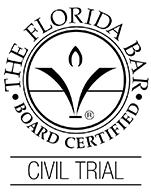Emotional distress claims have become an increasingly important aspect of personal injury law in Florida. When victims experience significant emotional trauma due to the negligent actions of another, they may be entitled to compensation.
At Dismuke Law, we understand the profound impact that emotional distress can have on a person’s life. Our team of experienced attorneys is dedicated to helping victims navigate the complexities of these claims and secure the compensation they deserve.
What Is an Emotional Distress Claim?
An emotional distress claim is a legal action taken by an individual who has experienced significant emotional suffering due to the negligent or intentional actions of another party. In Florida, these claims can arise from various scenarios, including personal injury cases. The emotional trauma suffered can manifest in numerous ways, such as anxiety, depression, and post-traumatic stress disorder (PTSD).
Types of Emotional Distress Recognized in Florida
Florida recognizes several types of emotional distress, including negligent infliction of emotional distress and intentional infliction of emotional distress. The former occurs when one party’s negligent actions lead to emotional trauma in another, often without any accompanying physical injuries. The latter involves more egregious conduct, where the defendant’s actions are specifically meant to cause emotional suffering, leading to a personal injury lawsuit.
How Emotional Distress Claims Arise After an Accident
Emotional distress claims frequently arise after accidents, where victims may experience extreme emotional trauma alongside physical injuries. The aftermath of such incidents can lead to a wide range of emotional suffering, including anxiety and persistent stress. Victims may find themselves dealing with the psychological impact long after the physical injuries have healed, necessitating the need for legal recourse.
Generally, you must establish a clear connection between the accident and the emotional trauma you experience. For example, if a victim develops PTSD following a car accident, they may be able to file an emotional distress claim as part of their personal injury lawsuit. This link between emotional distress and the accident is essential in demonstrating the impact of emotional distress in personal injury cases.
Proving Emotional Distress in a Legal Context
Proving emotional distress in a legal context presents unique challenges for plaintiffs. Unlike physical injuries, emotional suffering can be subjective and difficult to quantify. Thus, it is vital for victims to gather comprehensive evidence to support their claims. This may include medical records, psychological evaluations, and testimonies from mental health professionals that can substantiate the emotional trauma experienced.
Plaintiffs may need to demonstrate how the emotional distress directly correlates with the negligent actions of the defendant. This can involve detailing the events surrounding the incident and how those events have led to ongoing emotional suffering. As such, working with a knowledgeable personal injury lawyer is often essential to effectively navigate the complexities of emotional distress claims in Florida.
Key Evidence to Support Your Emotional Distress Claim
When pursuing an emotional distress claim, the key evidence needed often includes medical documentation and witness testimonies. Medical records can provide objective evidence of the emotional trauma sustained, while testimonies from friends, family, or mental health professionals can help illustrate the impact of the emotional distress on the victim’s daily life. Establishing a solid foundation of evidence is crucial in proving emotional distress in a personal injury case.
Documenting any changes in behavior or lifestyle due to emotional distress can further strengthen the claim. For example, if a victim has withdrawn from social activities or experienced difficulties at work, these changes can serve as significant indicators of emotional suffering.
Why You Need an Attorney for an Emotional Distress Claim
An experienced attorney can provide guidance through the legal process, ensuring that all necessary documentation and evidence are properly collected and presented. They understand the intricacies of Florida law and the specific requirements for emotional distress claims.
Additionally, a personal injury lawyer can advocate on behalf of the victim, negotiating with insurance companies and opposing parties to secure fair compensation. The emotional toll of dealing with a personal injury case can be overwhelming, and having a knowledgeable attorney by your side can alleviate some of the stress.
Schedule a Free Consultation With a Personal Injury Attorney
If you or a loved one has experienced emotional distress due to an accident, seek legal advice promptly. At Dismuke Law, we offer free consultations to evaluate your case and discuss your options for pursuing an emotional distress claim. Our experienced team understands the complexities of emotional distress in Florida and is committed to advocating for your rights.
During the consultation, we will assess the details of your situation and guide you on the best course of action. Contact us today to schedule your free consultation and take the first step toward seeking the compensation you deserve for your emotional suffering. Call Dismuke Law at (863) 250-5050 or use our contact form.


![cftla-member[2]](https://www.1800askdave.com/wp-content/uploads/2022/03/cftla-member2.png)
![cftla-member[3]](https://www.1800askdave.com/wp-content/uploads/2022/03/cftla-member3.png)










